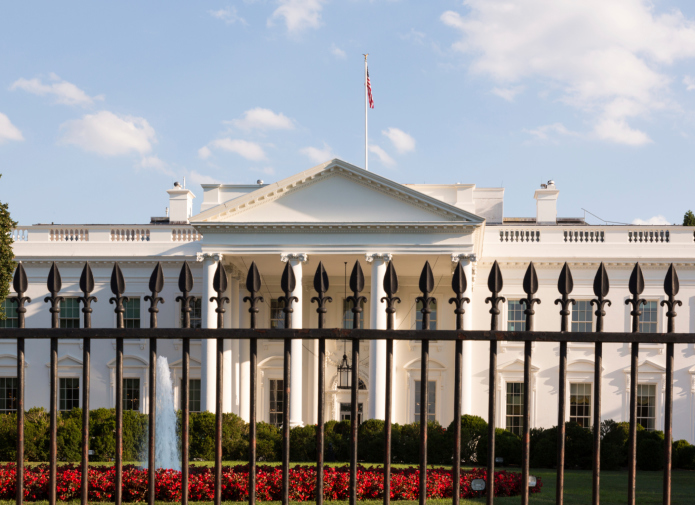In a result that surprised both the left and right, the Supreme Court ruled the individual mandate at the heart of President Obama’s health care law was constitutional, not on the basis of the Commerce Clause, but as a tax—an argument the White House itself had not advanced before the Supreme Court.
Chief Justice John Roberts, joining with the four liberal justices on the court, wrote the majority opinion.
“Neither the Act nor any other law attaches negative legal consequences to not buying health insurance, beyond requiring a payment to the IRS.… Indeed, it is estimated that four million people each year will choose to pay the IRS rather than buy insurance,” Roberts wrote. “We would expect Congress to be troubled by that prospect if such conduct were unlawful. That Congress apparently regards such extensive failure to comply with the mandate as tolerable suggests that Congress did not think it was creating four million outlaws. It suggests instead that the shared responsibility payment merely imposes a tax citizens may lawfully choose to pay in lieu of buying health insurance.”
Roberts’ decision did, however, restrain the Court’s understanding of the Commerce Clause, which was the Obama administration’s main argument in favor of the mandate.
“The individual mandate … does not regulate existing commercial activity. It instead compels individuals to become active in commerce by purchasing a product, on the ground that their failure to do so affects interstate commerce,” Roberts wrote. “Construing the Commerce Clause to permit Congress to regulate individuals precisely because they are doing nothing would open a new and potentially vast domain to congressional authority.
“People, for reasons of their own, often fail to do things that would be good for them or good for society. Those failures—joined with the similar failures of others—can readily have a substantial effect on interstate commerce. Under the Government’s logic, that authorizes Congress to use its commerce power to compel citizens to act as the Government would have them act,” Roberts continued. “That is not the country the Framers of our Constitution envisioned.”
Strong Dissent
In a strongly worded dissent, Justice Anthony Kennedy and the three conservative members of the court argued the entire law should have been struck down.
“The Constitution, though it dates from the founding of the Republic, has powerful meaning and vital relevance to our own times. The constitutional protections that this case involves are protections of structure. Structural protections—notably, the restraints imposed by federalism and separation of powers—are less romantic and have less obvious a connection to personal freedom than the provisions of the Bill of Rights or the Civil War Amendments,” Kennedy wrote. “Hence they tend to be undervalued or even forgotten by our citizens. It should be the responsibility of the Court to teach otherwise, to remind our people that the Framers considered structural protections of freedom the most important ones, for which reason they alone were embodied in the original Constitution and not left to later amendment. The fragmentation of power produced by the structure of our Government is central to liberty, and when we destroy it, we place liberty at peril.
“Today’s decision should have vindicated, should have taught, this truth; instead, our judgment today has disregarded it,” Kennedy wrote.
Returns Matter to Politics
Georgetown University professor Randy Barnett, one of the leading voices doubting the constitutionality of the Commerce Clause justification for the mandate, says the Roberts court effectively threw the matter back to the Congress to decide.
“Today’s decision validates our claim that a Congressional power to compel that all Americans engage in commerce was a constitutional bridge too far,” Barnett said. “By rewriting the law to make it a ‘tax,’ the Court has now thrown ObamaCare into the political process where the people will decide whether this so-called ‘tax’ will stand. And the people will also decide whether future Supreme Court nominees will pledge to enforce the Constitution’s restrictions on the power of Congress.”
Medicaid Expansion Restricted
In another unexpected move, the Court restricted the Medicaid expansion, finding in favor of a federalist argument that states should be free to reject the government’s requirements.
Andrew Grossman, who worked on the case, says the Court’s decision in this regard was fairly limited.
“What the court seems to have done is limit the Medicaid expansion in a very specific manner, in saying that this did exceed the limits of Congress’s power to coerce the states through exercise of the spending power,” Grossman said. “The remedy for this, rather than striking down the entire Medicaid expansion, was to give states the option to maintain their former status and former funding that they would have received. So the federal government, if the states choose not to abide by the expansion, cannot pull all their funding away.”
States Await Election
Virginia Attorney General Ken Cuccinelli, a Republican and one of the most prominent opponents of Obama’s law at the state level, says Virginia will consider blocking implementation of the health insurance exchange required under Obamacare and rejecting the Medicaid expansion.
“I certainly do hope we decline to implement,” Cuccinelli said. “We don’t need to grow government more. We need to go in the other direction.”
Virginia Republican Gov. Bob McDonnell said his state would wait to move forward.
“Our state is eventually going to follow the law, but we’ll see what the law will be next January,” McDonnell said.
And in a press conference, South Carolina Sen. Jim DeMint called on all states to wait before implementing the law.
“I urge every governor to stop implementing the health care exchanges that would help implement the harmful effects of this misguided law,” DeMint said. “Americans have loudly rejected this federal takeover of health care, and governors should join with the people and reject its implementation.”





